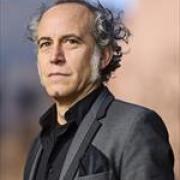
Richard Schneider, PhD
Rich graduated from Hampshire College in Amherst, MA in 1991. Following an internship at the Smithsonian Institution in Washington, DC, Rich published his first paper, which was on the development and evolution of the skull in wild canids and domestic dogs. He received his Master's Degree in 1994 and his Doctoral Degree in 1998 from Duke University in Durham, NC. Both of his graduate thesis projects focused on skeletal development and evolution in birds and mammals. Rich also studied embryology at the Marine Biological Laboratory in Woods Hole, MA, and at the Cold Spring Harbor Laboratory on Long Island, NY. For his Postdoctoral work at the University of California at San Francisco (UCSF), Rich investigated molecular mechanisms that pattern the craniofacial skeleton. In 2001, Rich joined the faculty of the Department of Orthopaedic Surgery at UCSF and he is currently Director of the Laboratory for Developmental and Evolutionary Skeletal Biology. He was a founder and a Director of the Graduate Program in Developmental & Stem Cell Biology (DSCB) at UCSF from 2009 to 2013, and he also served as a Director of the Embryology Course at the Marine Biological Laboratory in Woods Hole, MA from 2015 to 2019.
Rich's research has been focused on understanding how individual components of the craniofacial complex achieve their proper size, shape, and functional integration during development and evolution. To address this question, Rich has created a surgical transplantation system that involves two distinct species of birds (quail and duck), which differ considerably in their growth rates and anatomy. The experimental approach is straightforward: stem cells that give rise to craniofacial structures are exchanged between quail and duck embryos. This causes faster developing quail cells and relatively slower maturing duck cells to interact with one another continuously within chimeric "quck" and "duail" embryos. Also, chimeras are challenged to integrate species-specific differences in size and shape between the donor and host. By looking for donor-induced changes to the formation of bone, cartilage, muscle, tendon, nerves, and other tissues, Rich has been able to identify molecular and cellular mechanisms that pattern the craniofacial complex. A goal is to devise novel therapies for regenerating tissues affected by birth defects, disease, and trauma. Rich's work has also helped elucidate the role of development in evolution.
For more than 17 years, Rich has been vigorously engaged in issues related to scholarly communication, academic publishing, and open access (OA). He has spent multiple terms serving as Chair of both the UCSF and the UC System-wide Committee on Library and Scholarly Communication (UCOLASC) of the Academic Senate, and he led the effort to create and unanimously pass an OA Policy for UCSF faculty in 2012. In addition, he helped draft a UC System-wide OA Policy in 2013 and a Presidential OA Policy in 2015. Rich also spearheaded the effort by UCSF to become a signatory to the OA2020 initiative, and he galvanized the Academic Senate to endorse a "Declaration of Rights and Principles to Transform Scholarly Communication," which he devised as Chair of UCOLASC in order to make scholarly communication more open, fair, transparent, and sustainable when applied by UC during license negotiations with journal publishers. Most recently, Rich has been serving on the UC team that is negotiating transformative agreements with publishers and he has been deeply involved in outreach to faculty.
Interests: Skeletal development and evolution, musculoskeletal integration, form & function, craniofacial biology, neural crest biology, bone & cartilage
